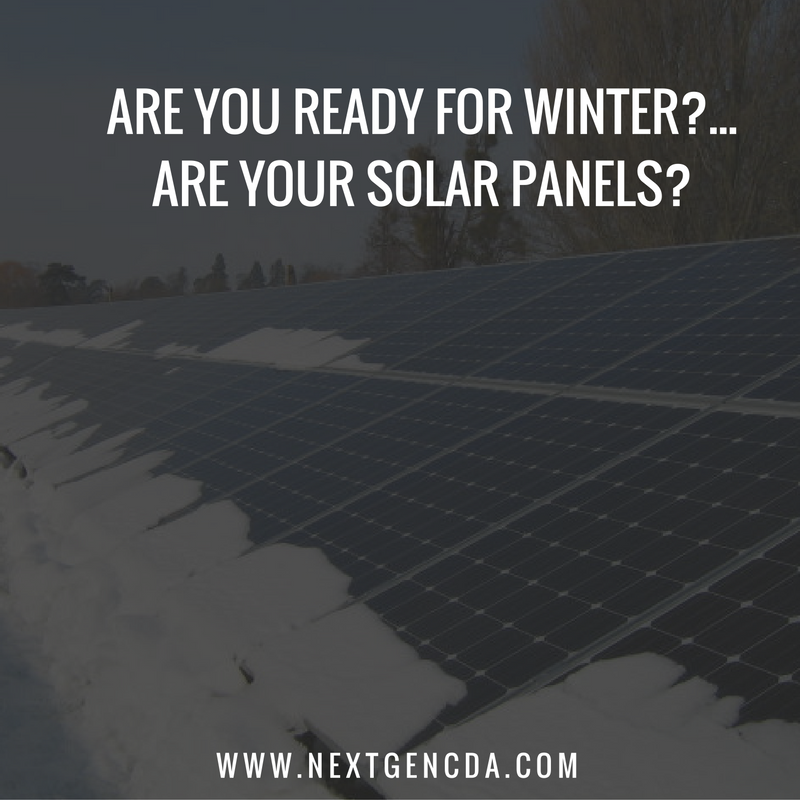Whether you’re in the market for solar installation or you’ve already invested, it’s important to understand the necessary maintenance for your panels. Luckily, solar panels don’t have any moving parts so there really isn’t much maintenance that is required. However, to gain the maximum potential and keep the highest quality of your system, you definitely should have them inspected a few times a year to ensure their efficiency. Inspections should entail removing any dirt or debris from the system as well as snow. It’s also important to review the panels to ensure no damage has occurred.
If you’re inspecting your panels yourself, always be sure to keep your safety in mind. If your panels are too high up on the roof to see very well from the ground, use caution with ladders and be sure to ask a friend to help provide support…moral and safety support!
Next Gen Electric offers solar panel maintenance services. Contact us today to schedule an appointment or to become a VIP customer with added bonuses including regular ongoing maintenance inspections. This is a better choice if you want a more thorough cleaning.
During our solar panel maintenance service, we get a lot of questions about cold weather and panel efficiency. We’ve compiled the top 3 questions here:
How Will My Solar Panels Do In Winter?
Solar panels work with light and not heat. That means that when the cold weather hits, your panels aren’t affected. In fact, they actually perform better in cooler temperatures.
Will My Solar Panels Produce Electricity When It’s Cloudy?
It may not seem like it, but even when it’s cloudy outside, there is still light. That’s all your solar panel needs. During winter, the days are drastically shorter, so that does affect how much electricity is produced vs. during the summer. However, panels trap any incoming light from all angles allowing your system to be efficient even on wintery cloudy days.
What If It Snows?
A professional installer will ensure that your solar panels are in the best position to get the maximum amount of sunlight possible. Typically, your system will be installed facing the south or southwest. Since the panels are smooth and generate a slight temperature change (warmer than snowfall), snow doesn’t stick to them like it would to your home’s shingles. It generally melts or slides away quickly and easily on its own.
What If It Snows…A LOT?
This can be common, especially for our clients in the Pacific Northwest! Blizzards can offer up some heavy now accumulation resulting in piles of snow on your roof and panels. Please consider hiring a professional when concerned about snow removal from your roof and panels. That way, you won’t have the added headache and cost of broken or damages panels.
Be sure to give Next Gen Electric a call when it comes to your solar panel maintenance. We’ll be happy to answer questions over the phone or come out to your site for a FREE consult. We want to make sure that your system (weather we installed it or not) is successful and working properly for you.



